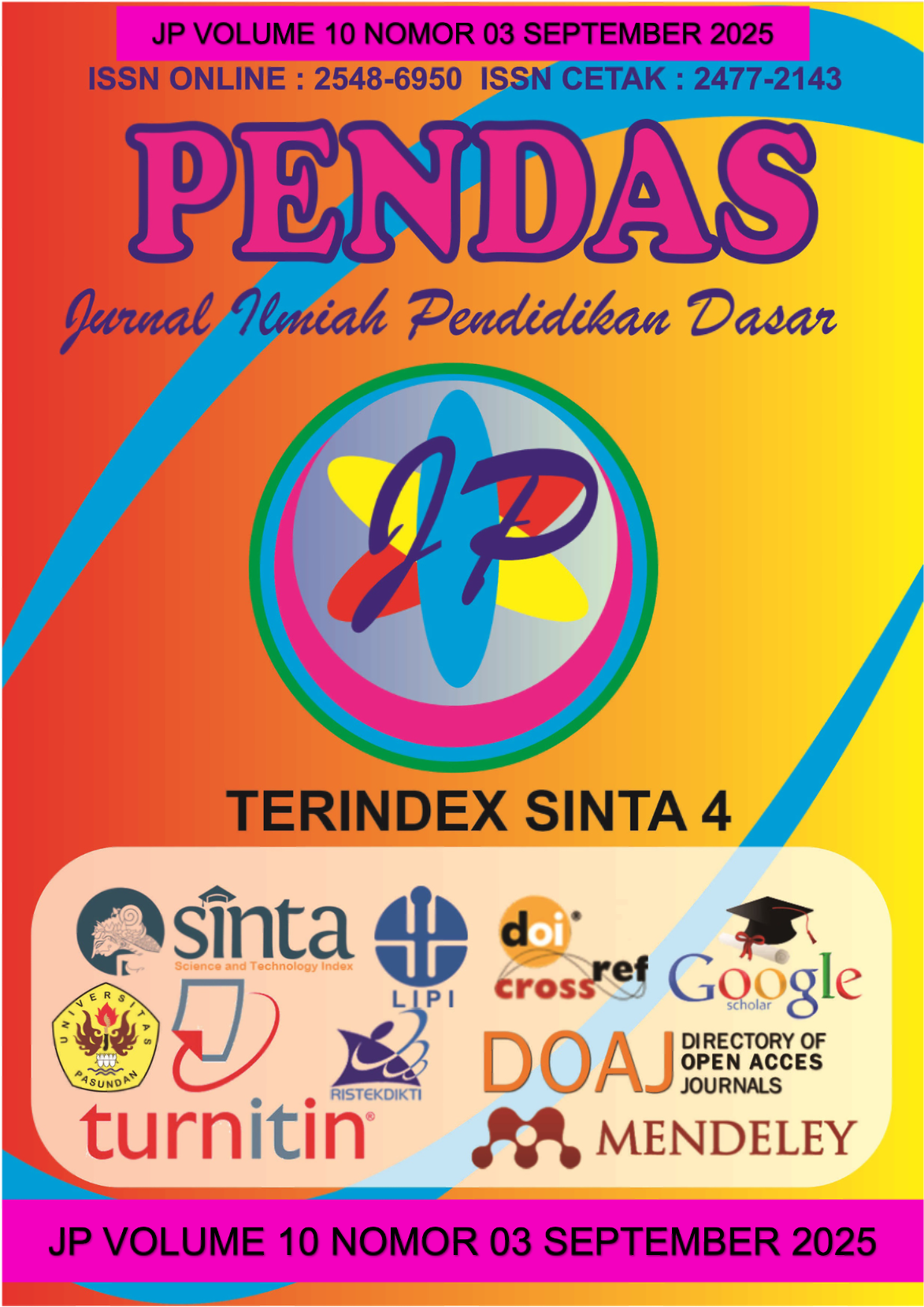The Pengaruh Model Project Based Learning terhadap Kemampuan Berpikir Kritis Siswa Kelas IV dalam Pembelajaran IPAS
DOI:
https://doi.org/10.23969/jp.v10i03.30783Keywords:
Based Learning (PjBL), critical thinking skills, science, elementary school.Abstract
The goal of this study is to find out how the Project Based Learning (PjBL) model influences the critical thinking skills of students at SDN 55 Bima City who are studying the Natural and Social Sciences (IPAS). The study is based on the fact that IPAS students don't think critically enough because the lecture technique is so common. The study uses a pretest-posttest control group quasi-experimental design and a quantitative technique. There are two classes in the sample: class IV A, which was taught using the PjBL model as an experimental group, and class IV B, which was taught in a traditional way as a control group. We employed essay examinations and observation sheets based on Facione's critical thinking indicators to get the information. The study of the data showed that the experimental group's scores went up by 18.1 points, whereas the control group's scores only went up by 7.1 points. The t-test's significance value of 0.000 (<0.05) shows that there is a big difference between the two groups. Students in the experimental group not only did better on tests, but they also took part in project activities including solving problems, working together, and debating. These results show that PjBL is a good way to help students learn in a way that is meaningful and relevant to their lives, as well as to improve their critical thinking skills. The PjBL model is offered as a replacement for traditional science lessons in elementary schools to make it easier for schools to use the Independent Curriculum
Downloads
References
Alfarisi, Muhamad, Adya Rosa Prasasti, and Titin Sarwendah. 2025. “Analysis of Student Interest in Natural and Social Sciences Integration Learning (IPAS): Study of Grade IV Students at SDN 8 North Metro.” JDPP Jurnal Dimensi Pendidikan dan Pembelajaran 13:29–40. https://journal.umpo.ac.id/index.php/dimensi/index.
Ati, Meganing, Ayu Adriyaningsih, Taridi Taridi, Candra Kusuma, Widi Astuti, Sutiyono Sutiyono, and Komang Sutawan. 2024. “Student Learning Model Enhancement: How Does the Project-Based Learning Model Affect Students’ Critical Thinking Skills?” International Journal of Science and Applied Science: Conference Series 8(2):140. doi:10.20961/ijsascs.v8i2.95124.
Fitriyani, Ade, Toto Toto, and Euis Erlin. 2020. “IMPLEMENTASI MODEL PjBL-STEM UNTUK MENINGKATKAN KETERAMPILAN BERPIKIR TINGKAT TINGGI.” Bioed : Jurnal Pendidikan Biologi 8(2):1. doi:10.25157/jpb.v8i2.4375.
Kurniahtunnisa, Anggraito, Y. U. Ridlo, and S. Harahap. 2023. “STEM-PjBL Learning: The Impacts on Students’ Critical Thinking, Creative Thinking, Communication, and Collaboration Skills.” Jurnal Penelitian Pendidikan IPA 1(1):1–4. doi:10.29303/jjppipa.v1i1.264.
Pursitasari, I. D., E. Suhardi, A. P. Putra, and I. Rachman. 2020. “Enhancement of Student’s Critical Thinking Skill through Science Context-Based Inquiry Learning.” Jurnal Pendidikan IPA Indonesia 9(1):97–105. doi:10.15294/jpii.v9i1.21884.
Sumiyati. 2022. “ENHANCING THE LEARNING OUTCOMES IN ENGLISH COURSE MATERIAL WITH PASSIVE VOICE THROUGH THE APPLICATION OF THE WINDOW-SHOPPING LEARNING MODEL.” Intensive Journal 05(1):2022. http://ojs.uniska-bjm.ac.id/index.php/EJB.
Widiatmika, Putu Wahyu, Ida Bagus Made, Ari Segara, Ni Made, and Yunita Widya Kusuma. 2023. “EXAMINING THE RESULT OF MACHINE TRANSLATION FOR LINGUISTIC TEXTBOOK FROM ENGLISH TO INDONESIAN.” Pp. 54–65 in. English National Seminar English Education Study Program STKIP PGRI PACITAN.
Widya, Laurentcia Noviafta, Cholis Sa’dijah, and Tjang Daniel Chandra. 2023. “Kemampuan Berpikir Kritis Siswa SMP Dalam Menyelesaikan Asesmen Kompetensi Minimum Numerasi Ditinjau Dari Efikasi Diri.” Jurnal Paedagogy 10(4):1189. doi:10.33394/jp.v10i4.9170.
Downloads
Published
Issue
Section
License
Copyright (c) 2025 Pendas : Jurnal Ilmiah Pendidikan Dasar

This work is licensed under a Creative Commons Attribution 4.0 International License.



















